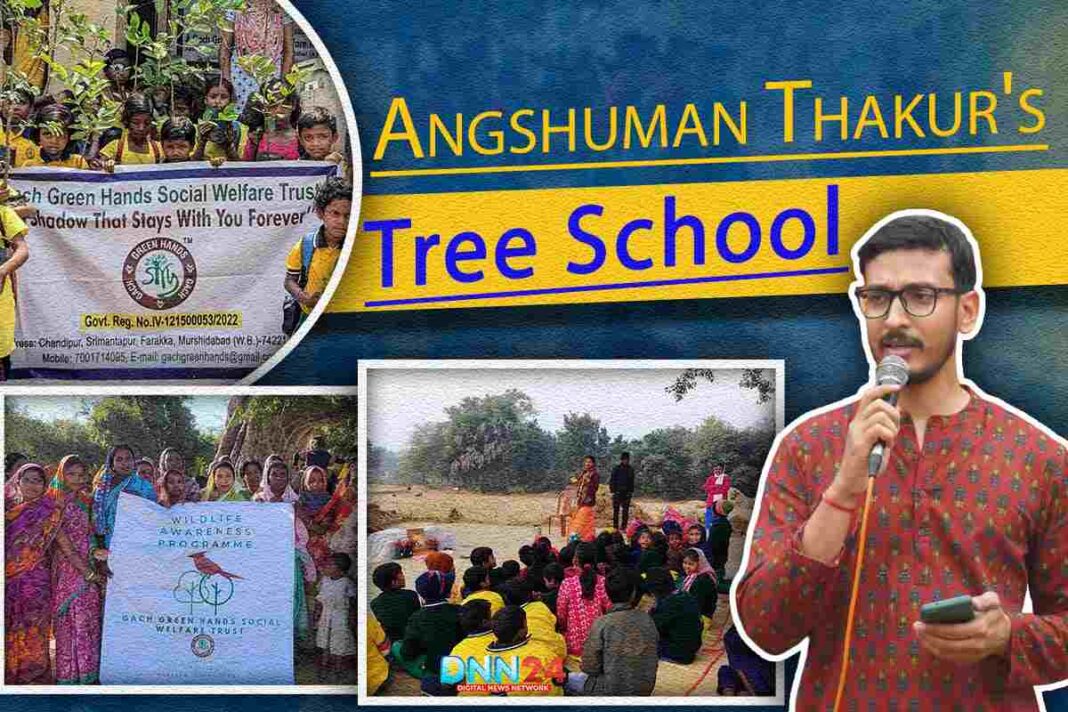Angshuman Thakur is a dedicated teacher from Farakka, Murshidabad, who started a wonderful initiative called ‘Tree School.’ Before the lockdown, this special place was filled with laughter as children came to play, learn, sing, and have fun. Angshuman, who teaches Bengali at a college, along with his friends, has been helping these children grow and discover the beauty of nature.
Having studied at Visva Bharati University, Angshuman shares a deep love for nature, inspired by the great poet Rabindranath Tagore. In 2019, he felt sad when he noticed that there were fewer trees around him. Wanting to make a positive change, he decided to plant trees and invited others to join him through a post on Facebook.
At Tree School, Angshuman teaches children to appreciate and love nature. He believes that by learning in an outdoor environment surrounded by trees, children can grow up strong and happy. This unique school not only provides education but also helps children connect with the natural world, ensuring they have a bright future.
Birth of Anirvana Gacher Iskul

In 2019, the ‘Gach’ (Tree) organization was launched with the goal of planting trees. However, during these tree-planting activities, it was realized that human actions heavily influence the environment. To genuinely save trees, fostering a love for nature among people became essential. Unfortunately, finding such individuals proved challenging. Consequently, the decision was made to establish a school where children would learn about nature from a young age, leading to the origin of the ‘Anirban Gacher Iskul’ concept.
With the onset of the COVID-19 pandemic and subsequent lockdowns in 2021, the urgency to establish this school increased as children were out of school. Thus, in March 2021, Anirban Gacher Iskul was inaugurated. Since the curriculum prioritized environmental consciousness, the intention was for the school to be conducted under the shade of trees. Additionally, due to a lack of resources to build a traditional school, trees became the foundation. The educational philosophy of Santiniketan, where learning often occurs under trees, significantly influenced the idea of running a school in such a natural setting.
Influence of Visva-Bharati University on Angshuman’s Teaching Style

The influence of Visva-Bharati University on Angshuman’s teaching style is profound. The unique bond between teachers and students that Angshuman encountered at Visva-Bharati is something he strives to recreate for the children in his school. Despite being located in a less privileged region, there is a commitment to nurturing local culture and diversity. In this endeavor to protect the environment, Angshuman is discovering a new world. He considers himself a student as well, reflecting the sentiment of the great Bengali poet Sunirmal Basu, who wrote, “My school is the entire world, I am a student of all.”
Challenges Faced by Tribal Children During the COVID-19 Lockdown
The challenges faced by tribal children during the COVID-19 lockdown were significant. The lockdown disproportionately affected children from marginalized communities, who were heavily reliant on government schools and the mid-day meal program. The sudden disruption of these essential services left them particularly vulnerable. With pre-existing high dropout rates, especially among boys in the area, it was anticipated that the pandemic would exacerbate this issue. In response to these challenges, the ‘Tree School’ stepped in to provide both education and nutrition to the children.

Unique Approach of Anirvana Gacher Iskul Compared to Regular Schools
The unique approach of Anirvana Gacher Iskul compared to regular schools lies in its emphasis on practical application of environmental studies. While environmental studies are included in nearly every school curriculum, the lack of practical application often hinders the development of environmental awareness among students. Instead of overwhelming students with textbooks, the school takes lessons outdoors, beneath trees, beside ponds, and in paddy fields. These natural settings provide ample opportunities to explore and appreciate the diverse world of flora and fauna. Children who once found joy in bird hunting now cherish these creatures. It is believed that nature serves as the most effective teacher, allowing students to learn its lessons instinctively through immersion.
Growth of Enrollment at the School from 5 to Over 100 Students
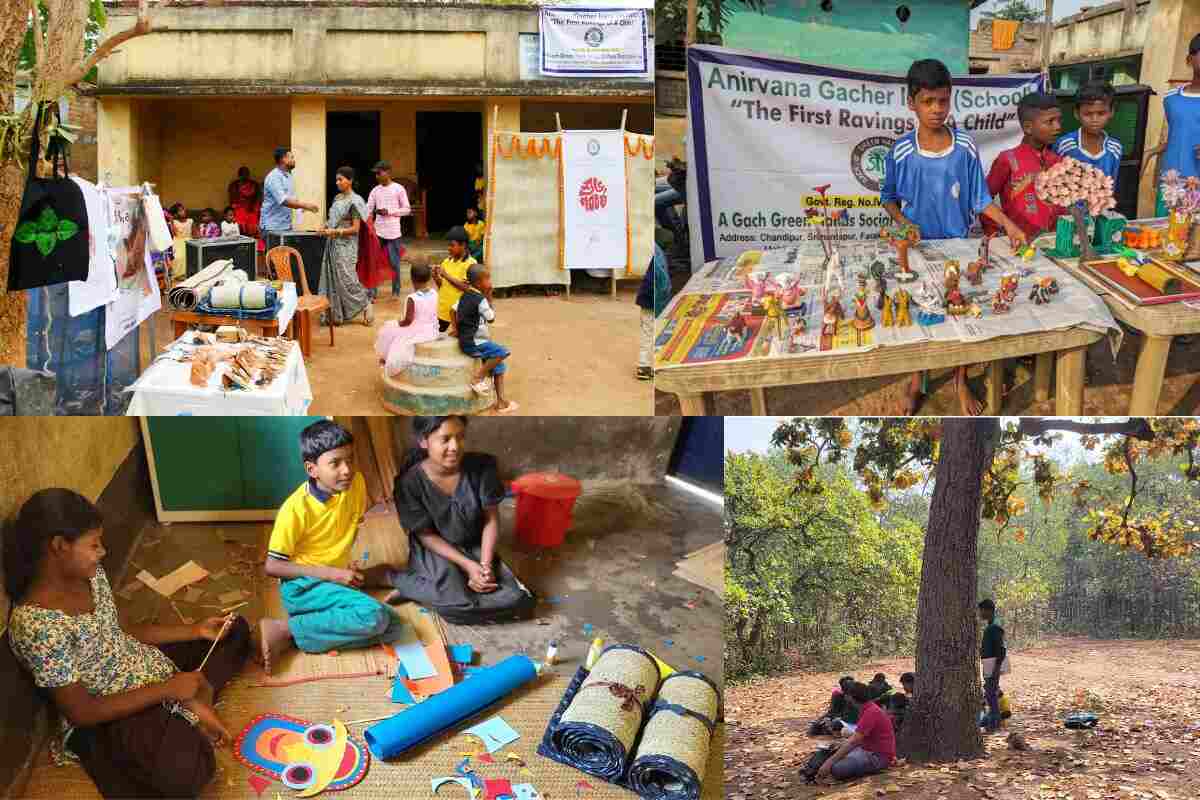
The growth of enrollment at the school from 5 to over 100 students in just three years presents a formidable challenge for the administration of a tuition-free institution. The costs associated with providing textbooks, uniforms, daily meals, and other necessities for each child are substantial. In striving to establish a school akin to Rabindranath Tagore’s Visva-Bharati, the school encounters numerous financial hurdles. Even Tagore, a towering figure in education, faced significant financial constraints. As a relatively small individual, the founder confronts even greater challenges. The solutions to these problems are believed to lie in nature, which inspires a philosophy of living simply and sustainably. The school is gradually embracing this philosophy and learning along the way.
Skills Beyond Regular Subjects Taught at the School
The school emphasizes a simple curriculum, recognizing that most students are first-generation learners and should not be burdened with excessive studies. It hosts numerous cultural events, providing children with a platform to express themselves rather than stressing them with academics. These cultural events serve as an excellent opportunity for children to learn from one another and develop their unique talents. Just as tribal children exhibit a natural talent for football, students are encouraged to pursue their passions. The belief is that fostering a free-spirited environment, rather than confining them to rigid academic structures, will help students grow into well-rounded individuals.
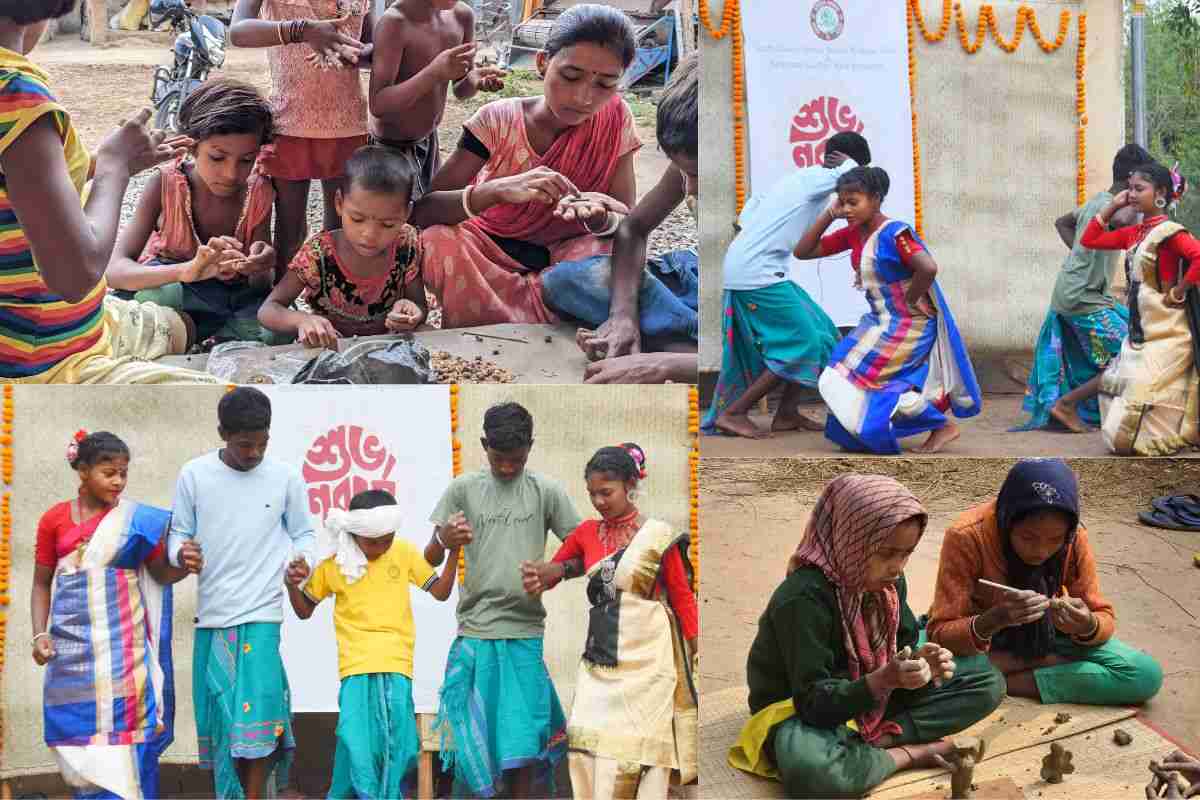
Measures Taken by the School to Prevent Student Dropout and Promote Education
The school focuses on teaching students self-reliance in addition to traditional education. Various workshops are organized, and handmade products created by students are showcased in exhibitions, helping them understand people’s preferences and tastes. Students are constantly exposed to the vastness of the world beyond their small village and the diverse activities that take place there. School teachers regularly provide counseling to motivate students in their studies and visit the homes of students who have been absent for an extended period. This approach is recognized as a long-term process.
Future Plans for Anirvana Gacher Iskul and Expansion Strategies

Anirvana Gacher Iskul aims to expand its outreach to reach more children from disadvantaged backgrounds. The school plans to build on past successes by continuing the positive changes observed in children’s lives over a three-year period. Additionally, there is a goal to create an eco-friendly campus that will have a substantial positive impact on the village and its surrounding areas. Furthermore, the school intends to implement environmental protection programs for students in Farakka and other parts of West Bengal.
Ways Ordinary People Can Support Anirvana Gacher Iskul and Its Trust
Ordinary people can help Anirvana Gacher Iskul by sponsoring a child’s education through monthly or yearly contributions. They can also provide for a child’s basic needs, such as monthly meals. The organization aims to offer technology-integrated learning for the children, and individuals can support this initiative by donating necessary technological equipment. Additionally, volunteers can conduct workshops to enhance the children’s learning experience.
Anirvana Gacher Iskul’s Eco-Friendly Sarat Mela
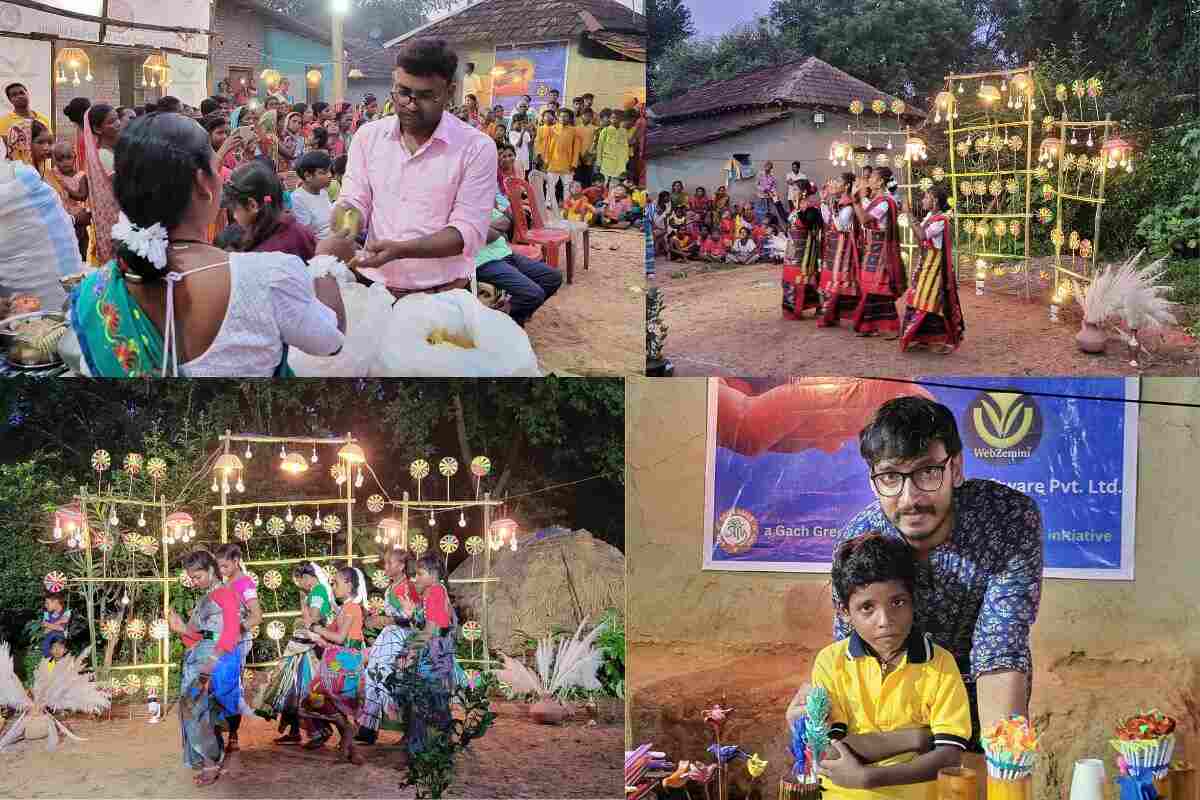
Every year, Anirvana Gacher Iskul organises a special Satar Mela (Autumn Fair) on Mahalaya. This fair shows off the handicrafts made by the students and their mothers. As Durga Puja is a big celebration in West Bengal, people are very happy and excited during this time. The school joins in the festive mood by holding this fair. The Sarat Mela is completely eco-friendly. They do not use any single-use plastic. The children themselves decorate everything for the fair. It is a nice sight to see. The students’ mothers sell tasty homemade food at the fair. Everyone enjoys eating these delicious treats.
The school children put on different cultural programs during the fair. They sing, dance, and act in plays. It is fun for both the performers and the audience.This Sarat Mela is more than just a fair. It helps build a good culture in the school. It lets everyone celebrate joy together. At the same time, it teaches the importance of being kind to the environment. The fair shows that festivals can be fun and eco-friendly too.
Utilizing the Green Economy to Create Youth Jobs While Protecting the Environment
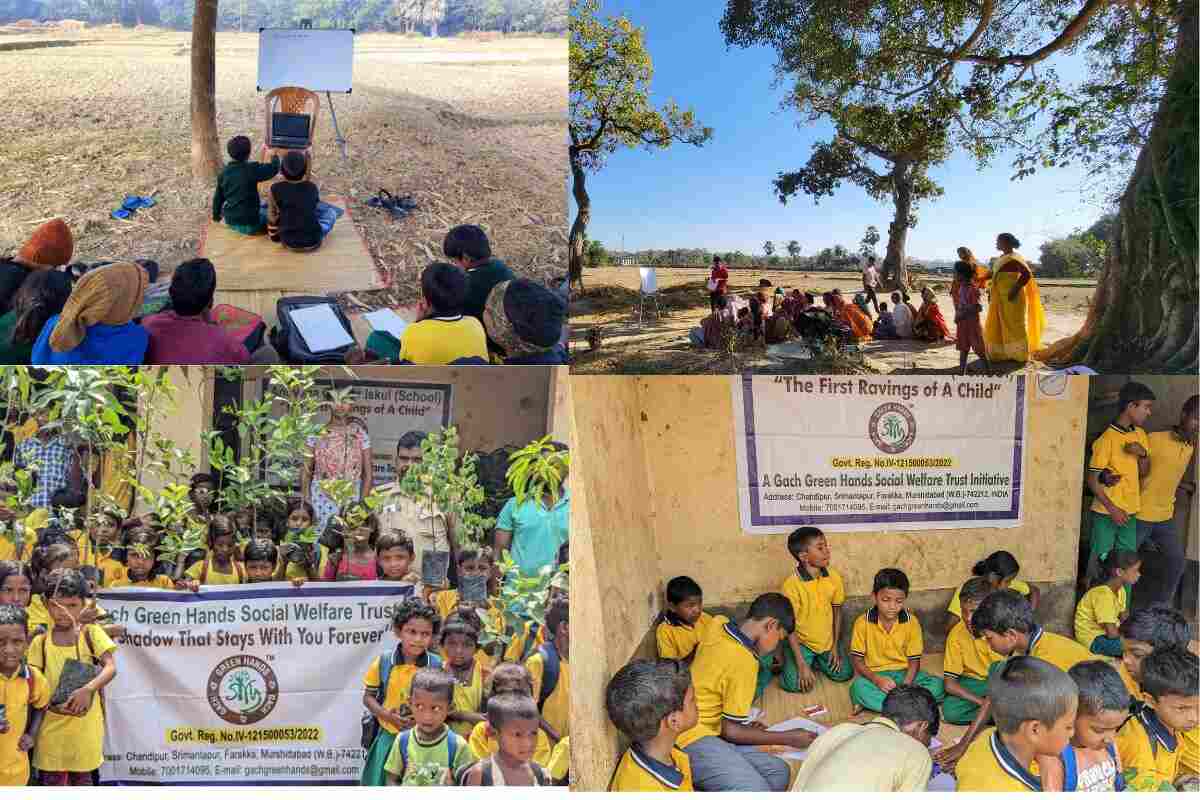
The idea of a green economy can be used to create jobs for youth while also protecting the environment. Environment-centric industries are seen as the future, with small-scale enterprises playing a significant role in building a green economy. Given that a large portion of the population remains below the poverty line, balancing environmental protection with economic growth presents a challenge. Technology is expected to play a crucial role in this process. Traditional agriculture and cottage industries, which are inherently environmentally friendly, need to incorporate technology to appeal to the new generation. Science-based education, cultural heritage, and innovative ideas are anticipated to be key factors in developing an environment-based economy.
Also Read:Ram Babu Tiwari: The Water Hero
You can connect with DNN24 on Facebook, Twitter, and Instagram and subscribe to our YouTube channel.

